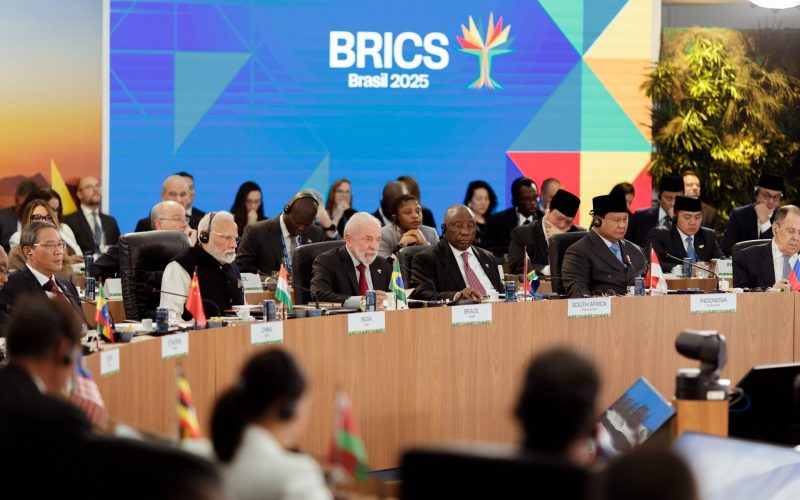The dti’s activities span the range of national economic life, and have a direct impact on the well-being of the nation’s citizens. A successful dti contributes to economic delivery by the state. In this vein, SAIIA has collated stakeholder comment on areas that speak to the department’s programme. The work of government is strengthened through input from associated parties – it may take a village to raise a child but it takes a nation to build a nation.
Neo Bodibe – Head, Policy and Research Institute, National Union of Metalworkers of South Africa (NUMSA)
The wage negotiations between union NUMSA and employers in the metals and engineering industry has brought to the fore the precarious situation of manufacturing firms. South Africa has been experiencing an unprecedented decline in its manufacturing output over time and this has placed a tremendous strain on firms, especially SMMEs who are battling to remain competitive in the face of increasing pressures from import competition. Stimulating manufacturing should therefore be at the top of the list for the dti as it considers how to allocate its resources.
The dti should urgently adopt a strategy to utilise selective tariff protection in order to support domestic value chains and build capabilities, and to prevent vulnerable and struggling sectors being wiped out while they improve their competitiveness. This strategy should include tighter monitoring and enforcement of anti-dumping regulations. The imposition of developmental pricing for crucial raw materials and certain strategic inputs in manufacturing and other productive processes remains a priority to stop excessive pricing.
State support to companies through various incentive schemes has been crucial in ensuring the sustainability of key industries, most notably the automotive industry. While continued support is important, it needs to be linked with local production and job creation obligations. No company should be receiving state support to enable it to import more finished products at the expense of local production and manufacturing jobs.
Trudi Hartzenburg – Executive Director, the Trade Law Centre (tralac)
The development of a comprehensive services agenda is necessary – encompassing a trade in services agenda and, in collaboration with other line Departments, a regulatory reform agenda for services sectors. The development of a coherent interface between the two agendas should enjoy priority. In terms of sectoral focus, an initial focus on infrastructure services is recommended to find synergy with the Infrastructure Development Programme. In addition, a comprehensive strategy for free trade agreement (FTA) negotiations should be prioritised which reflects and responds to current best practice. This will include not only services, but investment, competition policy and intellectual property issues. This should further be articulated within a strategy for engagement with Africa. This is very important given the current developments in, SACU, SADC and the Tripartite and Continental FTA’s.
Sanusha Naidu – Research Associate, Department of Political Science, University of Pretoria
We should focus on access to emerging markets, and how are we enabling our own manufacturing production into these markets. These markets are quite advanced, and some have high barriers to entry. More training should be provided for government and business (especially small- to medium-size business) around routes to access and ability to access markets in the global south, and this should align to our diplomatic missions and economic diplomacy. The Indian model of ‘conclave meetings’ between Indian investors and local business in selected regional entry point markets to discuss bankable projects is illustrative. More support should therefore be given to institutional vehicles for promoting investment flows, both at national and provincial level. Finally, there should be uninterrupted service to small business while the new Department of Small Business Development is fully operationalised.
Tinashe Kapuya – Manager, International Trade & Investment Intelligence, Agbiz
There is still need for deeper co-operation between the dti and private sector. Firstly Agbiz is concerned that unilateral decisions are taken by government without proper consultation with the private sector. An example is the cancellation of Bilateral Investment Treaties (BITs), with comments to an unpalatable Promotion and Protection of Investment Bill only called for after relevant decisions had already been unilaterally implemented. Secondly, greater co-operation is needed with regards to market access in international markets. Agbiz would like to appeal to government to involve the private sector more when entering into trade agreements, and when negotiating market access in other countries. There is not enough transparency and detail from government when engaging with private sector, and as a result, we depend more on the European Commission and the United States Department of Agriculture (USDA) for information than our own government.
Thirdly, Agbiz recommend that the dti invest resources in lobbying for the removal of non-tariff measures and technical barriers in our key markets, i.e. EU, Asia, the US and Africa. The proliferation of non-tariff measures has become an impediment to growth in South African agricultural exports. This has largely negated the potential of South Africa’s preferential market access arrangements with these regions. Fourthly, it would be highly beneficial to exporters of agricultural products if the dti could set up a single window export clearing house to overcome inefficiencies in the current system. Exporters need sanitary and phyto-sanitary certificates as well as export permits from the Department of Agriculture, Forestry and Fisheries; a customs certificate from Customs; and a tax certificate from SARS. A single window will create co-ordination, lower transactions costs, and result in more effective and timely services for exporters.
Taku Fundira – Senior Economist, Studies in Poverty and Inequality Institute
Many people, who operate micro and survivalist enterprises in the informal economy have been yearning for greater support and sometimes protection from the state over the past decade and this has not been forthcoming. Part of the problem has to do with the qualifying criteria used by the dti which effectively has acted as a barrier for most small and micro-survivalist enterprises. It is obvious that the informal economy plays a significant role in providing livelihoods for the majority of South Africans that are unemployed. As part of poverty alleviation, inequality reduction and unemployment eradication, the National Development Plan (NDP) identifies small businesses as a focal point. The absence of the word “micro” in all discussions about the new Department of Small Business Development though suggests that the necessary micro enterprises policy overhaul may not be forthcoming.
If the small business industry is to be one of the focal points of poverty alleviation, and the new Department of Small Business Development is to be used as a vehicle to purposively target this most vulnerable group, then the dti has a role to play in terms of providing support and advice to this new Department. As a matter of urgency, we would like to see the dti and the new Department devising strategies to assist small and micro businesses. They need to ensure that micro and survivalist enterprises form a key and active component of their work and are not neglected. Without these industries, the vision of reducing high levels of poverty, income inequality and unemployment could prove a daunting task.
Coenraad Bezuidenhout – Executive Director, The Manufacturing Circle
The Manufacturing Circle would encourage a stable investment environment devoid of shifting goalposts. Further, the promotion of ‘joined-up’ government is encouraged, especially insofar as the impact of labour instability and rapidly bunched-up increases in administered prices are concerned.
Hilton Zunckel – Managing Director, Hilton-Lambert, Practitioners of Trade Law
A budget line should be provided for participating in World Trade Organisation (WTO) dispute settlement processes. There is increasing interest from South African industries in bringing WTO disputes to defend their trade interests. In recent times South Africa has experienced several ‘very good logic’ instances for joining disputes, but a lack of budget has been one of the primary constraining factors preventing such participation. Providing such funding is actually an investment (as opposed to a straight cost) as the returns from fixing a trade blockage are exponentially larger than the cost of running a dispute. This should be a standing budget item. In some years it may not be used, but it is critical to have the facility available when the need to intervene at the WTO arises.
Conclusion
The Minister in his address to the Portfolio Committee called for new platforms to strengthen stakeholder engagement and deepen trust and co-operation between government, the private sector and organised labour. He advocated active and open-minded collaboration as the guiding thread for all joint actions in 2014 and beyond. The comments above are among the first fibres of such a thread.
(All photos are copyright of the authors depicted)















